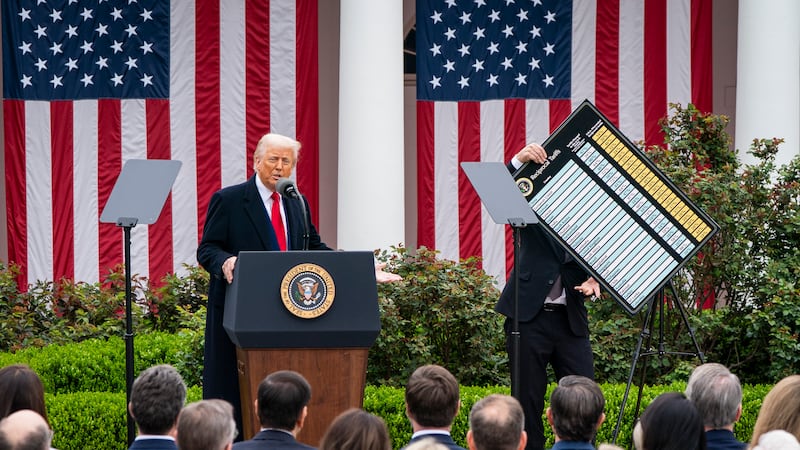The Government published a guide for fossil fuel exploration licence applications just weeks before Taoiseach Leo Varadkar announced a ban on this activity.
Mr Varadkar told the UN this week that the Government planned to phase out oil exploration in the Republic, beginning with territorial waters in the Atlantic.
However, oil and gas exploration will continue there and elsewhere in Irish territory for at least 15 years, as some licences already issued by the State run until 2034.
It has also emerged that the Department of Communications, Climate Action and the Environment published a financial guide for prospective fossil fuel exploration licence applicants just last month.
The guide, called Finance Capability Assessment for Offshore Oil & Gas Exploration and Appraisal Applications, appeared on August 9th last and is available on the department’s website.
The document details the financial and other information that oil and gas exploration permit applicants must submit to the department, responsible for fossil fuel exploration licences, to support their case.
Irish law requires the Minister for Communications, Climate Action and the Environment, currently Richard Bruton, to satisfy his or herself that anyone seeking an exploration licence has the cash and technical expertise needed for the work involved.
The 34-page guide states that each applicant’s financial capability “will be assessed” according to the criteria set out. Its appendices include an application form.
Unable to say
A spokeswoman was unable to say if publishing the guide indicated that the department intends issuing further exploration licences.
The Government said that it would not hold a new exploration licensing round for the Atlantic “closed” area, which covers 80 per cent of the Republic’s territorial waters.
However, the Government did not say if this would apply to the Celtic and Irish seas, off the south and east coasts, where companies have already discovered both oil and gas.
Irish explorer Providence Resources, led by chief executive Tony O’Reilly jnr, has stated that its Barryroe field off the Cork coast could produce close to 350 million barrels of oil.
The department’s spokeswoman said Mr Bruton would bring a memo to Government within a month setting out how the policy would be implemented.
She explained that the Government's Climate Change Advisory Council advised that continued exploration and extraction of oil and gas reserves were incompatible with policies aimed at cutting greenhouse gas emissions.
Some of the current oil and gas exploration licences run until 2034. These include permits, covering thousands of square kilometres of Irish territorial waters off the west coast, whose shareholders include multi-nationals such as Exxon Mobil, Total and ENI.
Continental shelf
Parts of the continental shelf off the Republic's west coast share geological traits with areas off Africa and South America that have produced lucrative oil and gas finds.
However, Irish waters have yielded few commercial reserves. Just two, the Corrib field, 80km from the Mayo coast, which now supplies two thirds of Irish natural gas needs, and the Kinsale Head gas field, have been exploited.
Providence is waiting for cash to bring Barryroe to production. The company said yesterday that it believed Mr Varadkar’s statement referred only to future licences.
“The company believes that all of the options, licences and leases already in place will be allowed to progress for their full duration,” Providence added.
The Irish Offshore Operators’ Association, an industry body, said it looked forward to seeing the exact detail of the Government’s policy.
Around two-thirds of the electricity that Irish people use comes from burning natural gas. The Corrib field is likely to run dry within 10 years.
Key industry figures such as Denis O’Sullivan, managing director of State-owned Gas Networks Ireland, have warned that the country needs to identify a replacement source for the fuel before Corrib is depleted.















